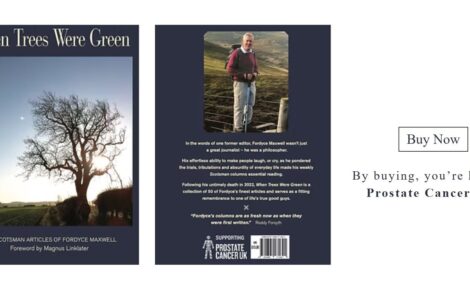



McDonald’s on Track to Purchasing Verified Sustainable Beef
GLOBAL - A global fast food chain has committed to sourcing verified sustainable beef from 2016 with the goal to eventually only buying sustainably produced beef.McDonald’s has described Monday’s announcement as the first step in a process geared towards fulfilling a long term industry aspiration.
No figures have been attached to specific volumes of beef or origins, but McDonald’s vice president for global sustainability Bob Langert has said the industry and McDonald’s is close to universally defining what sustainable beef means.
Mr Langert was quoted in GreenBiz as saying: “Our vision is to buy verifiable, sustainable beef in the future for all of our beef… we have achieved internal alignment and energy around that aspirational goal, which is a big task.”
The announcement follows a complex process in which McDonald’s engaged with every level of the supply chain from producer to feedlots, restaurants and retailers.
Five years ago, McDonalds commissioned a World Wide Fund for Nature study to assess what the biggest ecological impacts of the business were.
This saw McDonald’s bare all, giving WWF information on every product it buys, as well as quantities and sources.
The environmental, social, economic and social political impacts of beef, as well as poultry, coffee and oils were presented in March 2010. Beef was foregrounded as the number one ecological concern.
In 2012, the Global Roundtable on Sustainable Beef (GRSB) was formed, extending industry synergy across a larger swathe of the sector.
The founding members consisted of animal health companies (Elanco and Merck), retailers (McDonald’s and Walmart), a sustainable supply chain organisation (Solidaridad), a conservation organisation (WWF) and two agri-foods giants (Cargill and JBS).
Since inception, the roundtable has rapidly grown, now hosting Rabobank, Marfrig and Woolworths as well as a host of producer organisations such as the Cattle Council of Australia and the National Cattlemen’s Beef Association of the US.
Presided by Chief Sustainability Officer at JBS S.A Cameron Bruett, the GRSB’s first task was to define and rationalise what sustainability meant to the world, so a universal could be applied to every corner of the globe.
Six principles were drawn out to achieve this.
They were: principles of human welfare; community (culture, land rights, economics); animal health; welfare and food quality and safety, natural resources; and efficiency and innovation (carbon footprints, production increase).
The aim was then to work towards a universal scheme to source beef responsibly through the company's global supply chain.
“Our idea was to scope out five to 10 critical areas that we think no matter where you are in the world producing beef, and no matter what part of the supply chain you’re involved in, you should be addressing,” said Mr Bruett while addressing Greenbiz.
He added that if these areas are addressed in keeping with the specific region, then the product is ‘on the path to sustainability’.
A draft Principles and Criteria for Sustainable Beef was received by GRSB members in December. The draft will go through a review process until the spring when a 60 day public comment period will commence in March.
The end document is scheduled to meet final approval through a GRSB member vote in August, at the second Global Conference on Sustainable Beef in Sao Paulo.
Once the process is finalised, Green Biz asked McDonald’s whether the public will care about the verification.
He answered by saying that company research, carried out by Globescan, shows food provenance is important to consumers, although this will do little to influence people’s perception of McDonald’s.
“There’s always going to be criticism for big brands,” said Mr Langert. “I think that’s part of the territory. At the end of the day, this is not about reacting to critics of some sort. We’ve had a fair share of those over a couple decades.”
Nevertheless, Mr Langert said that corporate social responsibility and sustainability are considered a growth platform for the company, to be generated from its own strategy.
Exactly what verified sustainable beef could mean can be illustrated by knowledge transfer programmes that have driven sustainability at farm level.
*
"When we were selected to become a McDonald’s Flagship Farm I was delighted"
The McDonald’s Agricultural Assurance Programme (MAAP), started in 2001, allows McDonald’s to benchmark production standards across Europe, while Flagship farming, which arose from MAAP, showcases sustainable livestock and crop production.
Both schemes are run in conjunction with the Food Animal Initiative (FAI), a consultancy organisation responsible for identifying and promoting the best sustainable beef production within the McDonald’s supply chain.
Achieving sustainability from 2016 and beyond hinges on knowledge transfer and producer engagement, according to FAI Agricultural Consultant Karl Williams.
“Flagship Farms is vital because it shares best practice,” explained Mr Williams. “It is not McDonald’s saying this—it’s the farmers themselves saying this is what we’re doing and this is how we’re doing it.”
John Power, an Irish Cattle farmer from County Waterford, produces grass-based beef for McDonald’s.
Focusing on producing the best grass and genetics, Mr Power has had great results.
“This has allowed us to produce more beef from grass and forage, which is in our view, a very sustainable way of producing quality beef,” said Mr Power.
He added: “When we were selected to become a McDonald’s Flagship Farm I was delighted, and to me this has shown the positive commitment that McDonald’s has in our approach to beef production.”
Michael Priestley
News Team - Editor
Mainly production and market stories on ruminants sector. Works closely with sustainability consultants at FAI Farms



